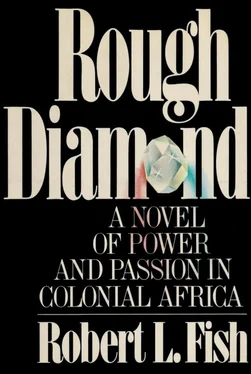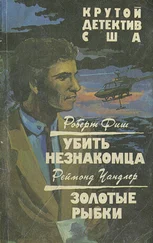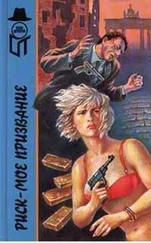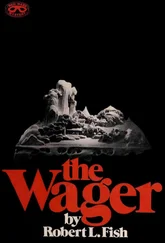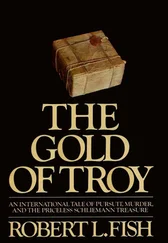Barney pulled up the reins; the horse obediently stopped. Barney considered Ryan with dangerous quiet. “I don’t believe you.”
“Then you’re the only one in town who doesn’t. They’ve been laughing at you, Barney. One half the town’s been laughing at you. The other half has been praying you’d be taken down a peg or two. They resent you not taking a part in this revolt thing. They resent your success. They resent your money. They resent your being a Jew. They resent your friendship with Kruger, who they hate like poison. Maybe I’m foolish for telling you all this, but it’s high time somebody did. You’re throwing away a fortune, if what you told the boys is true, for men who don’t deserve it.”
“Then I guess I’m going to throw it away,” Barney said without expression, and whipped the horse up again. “Reach behind you for another poster, Johnny. We’ll be at the Primrose shaft in a few minutes.”
The reporter stared at him a moment. Barney returned the stare imperturbably. Johnny Ryan sighed and then, with a shrug of nonunderstanding, reached behind the seat for another notice of closure. One thing he knew, though: whether Barney Barnato was being a damned fool or not, it was going to be one hell of a story.
Paul Kruger had donned his most formal dress; across his barrel chest ran a new and lustrous blue-green silk sash of office, and although he was seated indoors on his favorite chair in the front sitting room of his home, a new tophat graced his large head, quite as if he were presiding over the Volksraad. Barney, shown into the presidential presence, stood almost at attention before the impressive-looking man.
“You sent for me, Mr. President?”
Kruger waited until his aide had withdrawn, closing the door behind him, and then looked at Barney. His hands, bent arthritically around the curved lions’ heads at the end of the chair’s arms, were clenched about the ornate wood tightly; there was the pain of defeat in his old eyes.
“Mr. Barnato, I have asked you here to give you the decision of the Executive Committee of the Volksraad. It is a decision made with mercy. The sentences of those involved in the attempt to overthrow the Transvaal Republic have been commuted. The four ringleaders, upon payment of a proper fine, will be freed and deported, banished for life from the Transvaal. There can be no discussion on this point. The sixty other men involved in the so-called Reform Committee will be freed upon payment of a proper fine, but not deported nor banished from the Transvaal.”
No muscle moved in Barney’s face at this triumph. “Thank you, Mr. President.”
“In return, I expect the notices of closure on your properties will be removed.”
“By nightfall, Mr. President.” He hesitated as Kruger remained silent. “Is there anything else, Mr. President?”
“Yes. One thing.” There was a moment’s silence before Kruger continued. When he did there was a touch of sadness in his voice, but the rigid hardness of steel as well. “You will not be welcome in this house again, Mr. Barnato.”
“I’m sorry to hear it, Mr. President.” It was an unfortunate thing, Barney knew, but he could understand it. He wondered if, under the same circumstances, he could have voiced the same dictum with the same composure. He bent his head a fraction and this time, in deference to the old man sitting there so majestically, while at the same time so helplessly defeated, Barney Barnato slowly backed from the room, his head remaining bent in recognition of having been in the presence of a great man, a man he had been privileged to know as a friend, a man he had bested for others who were, in effect, far more his enemies than the old man sitting so rigidly in the gloom of the rococo room.
“England,” Barney said to Fay with a broad smile, and patted her growing stomach affectionately. “You’ll have Jason, or Michelle, or whoever, there. Would you like that? A proper doctor, with proper nurses, in a proper hospital if you want — everything proper and the best for our second kind . What d’you say?”
Fay smiled at him a bit mischievously. “Kinder , most likely. What if I have two Jasons, or two Michelles? I’m getting awfully big, you know. Could they handle that in England?”
Barney waved the question away majestically. “Lydy, us’ns can ‘andle anythin’ in ol’ Lunnon Town! Bybies er men folk. Er women folk, fer all o’ that.” He dropped the atrocious and nearly forgotten accent and grinned at Fay. “We’ll be able to see Harry and his family again, and my folks who are still alive, thank God, and I’ll show Leah the King of Prussia where her uncle Harry was a bouncer and her daddy used to do his first juggling act, and I’ll stand her a ginger beer and you a regular beer just for putting up with me all these years — if the King is still there, of course. How would you like that?”
“If that’s what you want, darling—” She saw some of the joy leave his face and added swiftly, softly, “It’s what I want, too, darling. When I say I want what you want, it isn’t just to make a concession to you. It’s because what pleases you pleases me. And going to England again will please both of us. Besides,” she added, as if to put a touch of logic into the discussion, “Leah Primrose should meet her cousins, get to know her family. I love the idea. When do we leave?”
“In a month. I’ve booked us passage on the Scott; it’s an all-steam ship,” Barney said, spirits restored. God, after all the years one word from Fay could still raise him to heaven or devastate him! “We can stop on the way to the Cape and spend a few days in Kimberley, see old friends, look in on the Paris Hotel, drop by Dutoitspan, remember when and where we first met.” He looked at Fay, serious now. “D’you remember those days?”
She reached for him, taking his hand, squeezing it tightly.
“They’re rather hard to forget, darling. I sat in that tent with my pa, cutting cloth for miners’ pants, basting for Pa to sew, wondering what on earth I’d done on the trail to keep you away from me, to make you forget me so soon, or to want to forget me.”
“And I went from sorting shed to sorting shed with old Rhodes, wondering how on earth I could get up the nerve to tell you that a nobody like me was in love with a beautiful girl like you—”
Fay smiled. “You mean, in love with a beautiful, rich, well-dressed” — her smile faltered a bit at the memory — “shy, silly, terribly frightened girl like me, with ugly hands.” She looked down at her hands and then pulled Barney to her, holding him tightly. “Oh, Barney, we’ve been so lucky!”
“We’ll always be lucky,” Barney said, and meant it. He paused as there was a discreet tap on the open door; a servant was there, waiting for their attention. “Yes?”
“Your nephew is here.”
Fay looked at him questioningly. “Solly? For dinner?”
“No, just for a few minutes. I asked him to drop in before dinner. He’ll be coming to England with us.” He turned to the servant. “In the living room.”
“Oh?” Fay said. “That’s nice. I’ll have some tea made.”
“I think he may prefer whiskey tonight,” Barney said enigmatically, and walked into the living room, forming the words in his mind he intended to use, although he had considered them in detail for some time. When Solly appeared, debonair as usual, Barney nodded to him pleasantly and walked over, shutting the door. Solly sat down in an easy chair and brought out a large cigar, lighting it, leaning back comfortably.
“You wanted to see me, Barney?”
“Yes.” Barney sat down opposite him. “I’m going to England, taking Fay and Leah Primrose with me. I thought it would be good for Fay to have the baby there with decent care and everything. And it’s about time for Leah to meet her family, anyway.”
Читать дальше
